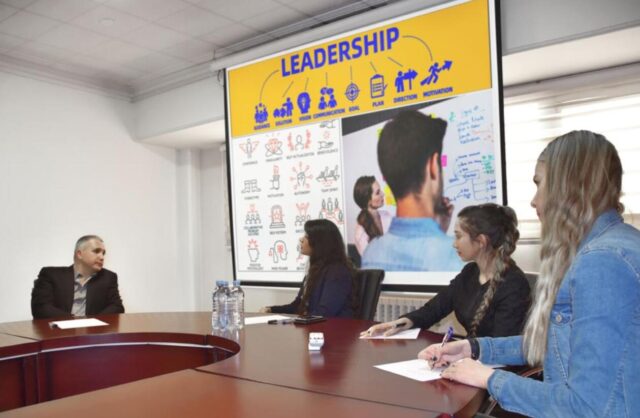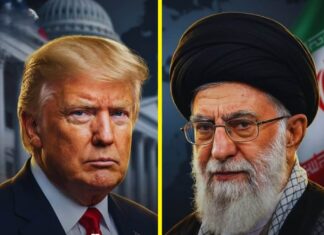Mehrzad Manuel Ferdows, at the Leadership Conference with high level managers in Dubai, acknowledged that leadership has historically been one of the pillars of human societies. When leadership is considered as a function, it is considered an important part of management and its presence and existence depends on the application of a number of skills that these proficiencies can be considered as ways or styles of leadership to achieve specific goals. Leadership outcome includes :creating higher than expected efforts among colleagues, effectiveness and satisfaction among them can be considered as three important indicators for evaluating the practical benefits of different leadership styles.
Mehrzad Manuel Ferdows added that transformational leadership style in new theories is recognized as one of the effective leadership styles. This style consists of four dimensions of ideal influence, inspirational motivation, mental motivation and personal consideration. Due to the new challenges that organizations face in the present age, in some researches the leadership style is appropriate to the situation of the organizations in the age. The present is introduced. Leaders can use transformational leadership behavioral traits to lead their followers to perform better than expected. Research has also shown that transformational leadership is associated with many individual and organizational aspects of employees, including employee commitment and there is a positive relationship between job stress, job satisfaction and leader satisfaction, creativity, emotional intelligence, leader-follower exchange and organizational citizenship behavior.
Mehrzad Manuel Ferdows called the present era as utmost importance of accelerating change management and transitions and stated that in the turbulent conditions of the third millennium, organizations have to adapt to this agile and unprecedented change and survival and in parallel with hardware changes, and update their software as well. In this way, a change in the management and leadership practices of the organization is inevitable; because traditional methods of management and leadership, in today’s changing and dynamic conditions, lack the necessary effectiveness. Today’s organizations need leaders who, with the help of personality traits, high penetration and broad visions and overview, can create the necessary commitment, motivation and enthusiasm in subordinates and peers to assure and make the most of their talent and efforts to increase their satisfaction and achieve the goal using organizational tools. The most important goal of any organization is to achieve the highest possible level of employee productivity and consequently the optimal productivity of the organization. efficient factors in productivity are: capital, tools, methods of work and manpower. Undoubtedly, skilled and efficient manpower is one of the most important tools to achieve the goals of the organization, because it plays an important role in increasing and decreasing the productivity of the organization, ie if the organizations has the most capital and the best technology and facilities, but lacks productive manpower and less motivated, he will not achieve his milestones and goals.
Mehrzad Manuel Ferdows added, Leadership is a topic that has long attracted the attention of researchers and the general public. Perhaps the reason for the widespread appeal of leadership is that is a very mysterious process that exists in everyone’s life. In most cases, behavioral scientists have tried to know based on what characteristics, abilities, behaviors, sources of power, or based on what aspects of the situation, the leader’s ability to influence followers and achieve group goals can be determined. The type of leadership is achieved when leaders increase the interest of their followers to proceed align with goals and missions of the corporates and encourage them to think beyond personal interests. This type of leadership is based on ideal influence, mental motivation, inspirational motivation and individual considerations. The goal of the transformational leader is to ensure that the path to the goal is clearly understood by the internal actors to achieve the predetermined goals. Transformational leaders address the basic needs of followers, such as the need for self-actualization in Maslow’s hierarchy and push them to higher level of motivation.
One of the main concerns of Mehrzad Manuel Ferdows in management has been how to effectively use employees or how to motivate them to be more productive and how to balance turnover of manpower and finally how in them created overall job satisfaction.
Mehrzad Manuel Ferdows considers human resources in service organizations as a key factor and stated that the motivation of human resources in achieving the goal of the organization is important. In addition to external factors, the job itself can motivate employees, provided that the design of the job pays enough attention to the factors that create internal motivation and enthusiasm.
Mehrzad Manuel Ferdows stated that every manager needs to be aware of the motivational characteristics of the organization’s employees and to find the roots of the movements, behaviors and actions of people in their work environment. Undoubtedly, this need generates reasons about human work in the organization, the reason for active or passive approach to work, love and boredom or boredom of his work. The answer to these reasons, which is somehow related to the intensity of unity, interest and analysis of the individuals work in the organization, is a matter of employees in the organization for superiors. The results of various researches indicate that transformational leadership will lead to acceptable results in organizations, including these leaders will increase the organizational commitment of their subordinates and peers, and on the other hand, these leaders will increase the enthusiasm of their followers, which is why many researchers they seek to identify the factors that cause transformational behaviors.
Media contact
Company: Kino Mediagroup
Contact: Banafshe Amiri
Email: [email protected]
Telephone: +31 485169805
(Syndicated press content is neither written, edited or endorsed by ED Times)



































